Don't wanna be here? Send us removal request.
Text
Harden(ly) Know You
It always amazes me how people think videos like the one circulating around the web about James Harden, will never get out.
youtube
Here you have a man whose team that is paying him $38.2 MILLION dollars a year and he is ACTING A FOOL to try to get traded. The team made a commitment to pay him one of the highest salaries in the NBA and he made a commitment to them to play through the 2022-2023 season.
Not only is it a bad look that he is at a strip club instead of preparing to tackle the season but he has also shown up out of shape. Granted 2020 hasn’t been healthy for all of us but I think he’s playing to the wrong crowd when unemployment is riding around 7% and he’s making ten’s of millions of dollars. How exactly does he think this is going to work out?


and he is maskless! Now some are speculating that Harden had COVID over the summer and that was the cause of him showing up late to Houston and not as a hold out as part of his current trade demand. I tend to think he’s just having a hissy fit

Harden has never won a championship and he’s now 31 years old which is no spring chicken. You can understand why he’d want to join a team that he feels could win now.

The phrase win at all costs is something that we’ve all heard but does all costs include the cost of dignity? Dignity for the player? Dignity for the team acquring. I don’t think it is and I’ll be rooting against him whether he likes it or not.

0 notes
Text
Living LFS Social Media Strategy
We’ve reached the end of this course (plus a little) and I’ve learned a lot about how social media can be not only an important part of a non-profit business, but an overall strategy to drive towards our organization’s goals.
At Living LFS, we encourage, empower, and educate those living with Li-Fraumeni Syndrome (LFS) by connecting them with care, resources, and others who are Living LFS.
Li-Fraumeni Syndrome (LFS) is linked to a mutation in the TP53 tumor suppressor gene. There are many types of TP53 mutations. People with this mutation have a higher risk of developing cancer over their lifetime. LFS affects each individual differently, even within the same family. Some families with LFS have higher rates of cancer incidence, while others do not. Nearly 100% of women with LFS get cancer in their lifetimes. Men have a 70% or greater chance. It’s our mission to make sure families living withing the LFS blast radius get the care, information, and sense of community that they need. Receiving an LFS diagnosis is both devastating in its impact and isolating in its rarity.
How does this align with Social Media? Our founder Jen Mallory was diagnosed with Li-Fraumeni Syndrome and metastatic breast cancer in 2012. At the time, there were only thought to be 400 families with LFS in the world. Realizing the importance of connecting these isolated families together and advocating for this rare disease she started a Facebook Support Group in 2013. As the group grew, she founded Living LFS, and it was registered as a 501c3 non-profit in 2014.

Jen posted blogs, connected with other families, and built a board of directors. Together the board held fundraisers and sold branded merchandise. They began attending advocacy events in places like Rare Disease Week in Washington DC and provided travel scholarships to LFS specific events. Living LFS continued to grow but has gone through its ups and downs as its board of directors is made mostly of patients who are often “cancering”. Jen herself became sick stepped back from the posts, and stepped down as president of the organization. She left enormous shoes to fill and we needed a plan. That’s where this class came in.
The first thing that really opened my eyes was the TOFU, MOFU, BOFU marketing funnel.
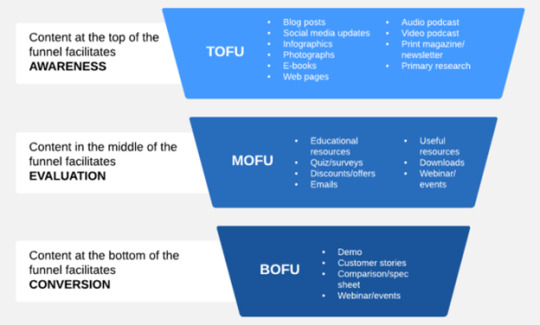
After looking at the funnel the first thing that came to mind was the question “what are we actually trying to do?” or "What does conversion mean for us?”. After reflecting on it, to us, conversion means three things
1) Families found our support group and connected with others
2) A person donates
3) A person signs up for volunteering
The next step was to understand who exactly our customer was. When we started doing this we noticed a few things. First, the most active people in the group, on our social media pages, and within our volunteer ranks were women.
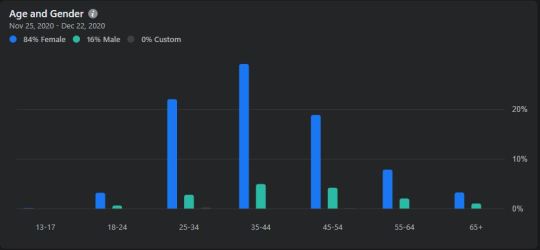

Second, the people were mainly from the United States but interestingly also in Australia and the UK.

And finally, we really did a terrible job at keeping track of who our donors were.

Overall the social media strategy will have two main paths. The first is to ensure that all of our social media accounts are pointing to our Facebook support groups.This ensures that the people with Li-Fraumeni Syndrome are connecting with other families and can get the information and care that they need. This also serves as the eco-system to pump all of our fundraising, campaigning, and other information through.
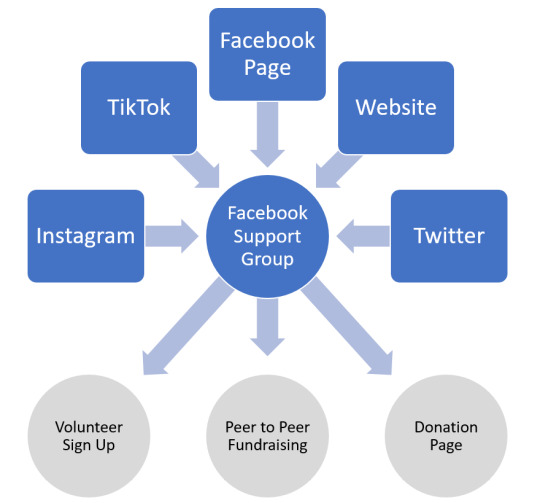
The second was ensuring that people found our website through google and that our website directed people to our volunteer signup, fundraising, support groups and donation pages.
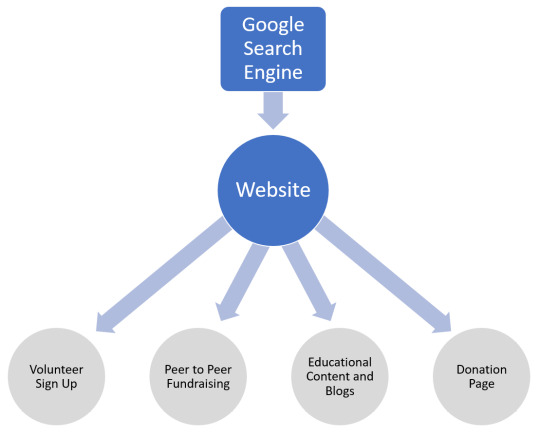
Now that we evaluated who our end conversion customer was we decided to look at how we did against each of the items listed in the funnel at each of the steps. After going through the entire list we created actions which will translate into our 2021 goals.
Before even getting through the first layer of the funnel we can see how the number of blogs and our content has fallen off over the years.
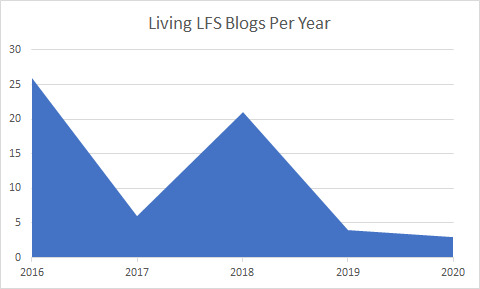
The actions from the TOFU section were all around getting our content going and distributed through our social media channels described above.
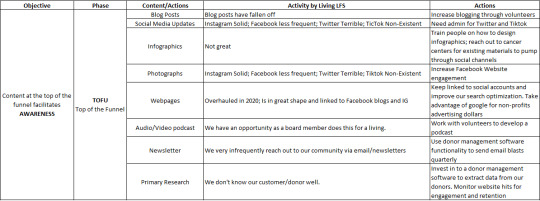
We found that we had a very limited prescense on Twitter and zero existance on TikTok. Luckily during the semester we found a woman on Tiktok who has agreed to volunteer and we’re just launching our tiktok account. She has also agreed to take over our twitter account where there is a large medical community presence that we can leverage.
View this post on Instagram
A post shared by Living LFS - Li-Fraumeni (@livinglifraumeni)
The other part of the funnel which we addressed this November was going live with our new donor management platform called network for good. I realized that we have very limited data on our donors and that it was spread across many platforms including paypal, physical mail, facebook, and venmo. We consolidated all this data into one place. This also allows us to say thank you much easier.
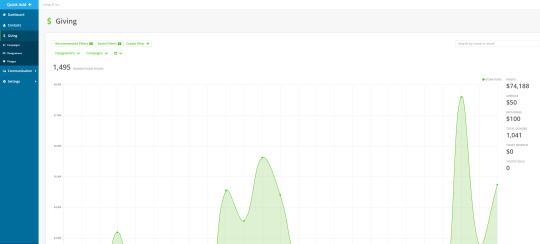
In the MOFU section of the review we found that we really need to just broadcast the information that we have in a better way. We have a ton of content that sits and is stagnent. The new donor management platform will help us with email blasts for both new and old donors and famililes. We can build many of these actions into our board approved goals for the year.

In the final section we will focus on conversations. Once we have people funnelling into the group we need to take advantage of their willingness to help. We have tons of volunteers and have historically struggled to manage them. The new donation platform allows for peer to peer fundraising where people can manage their own fundraisers without the need of much assistance from the board.

So we have a plan for the future now. A plan that we will make sure that Jen’s vision guides every decision we make, but with a little more structure and thought behind it. On Saturday we had a memorial for Jen where all said goodbye but we know that her vision and passion to support those with LFS will carry on in everyone who is a part of Living LFS
1 note
·
View note
Text
Win at All Costs
“Sweep the leg Johnny!”

Who knew that this movie staple of my childhood would make it’s way into an MBA assignment but here we are. The premise is clear. Win at all costs. You can see the moral dilemma in Johnny’s eyes and the complete lack of empathy on his sensei’s. As a child, we’re taught that evil decisions like this don’t work out for the immoral person. Daniel wins the match, gets the girl, and goes on to live a happy and complete life.
We all like to still believe this but in real life things are more complex. In the late 90′s steroids were so prevalent that it was estimated that up to 40% of baseball players in the 90s used steroids. They did this at the expense of their dignity, set illegitimate records, and made hundreds of millions of dollars doing so. Barry Bonds set a new record for the all-time home run leader, earned 188 million dollars in his baseball career. Giants fans, even with the persistent rumors and investigative work that went into Bonds’ career with steroids still love him to this day. That’s because fans like winners, and they don’t particularly care how they get those wins. They will go to the grave defending their stars and idols.

We are all fans. We have people who we look up to and we all choose sides that we adamantly defend. Whether it’s Coke vs Pepsi, Chevy vs Ford, or my team against yours. We pick a side and we present our case as to which is better. Sometimes we exagerate, some times we tell white lies, or we defend things like SpyGate, DeflateGate, etc because we want to win. When we travel we look for “Patriot’s Bars” so we can be with our fans and cheer them on.

This brings us to the state of politics in this country. We have grown up taught that you root for a team, YOUR team, and you need to win. With politics it’s the same. We often root for the same teams our moms and dads did, just like in sports. We stop listening to the other side and have beers with like minded friends. We defriend people who don’t believe in the things we do. We join Facebook support groups that pull us into these echo chambers of influence, where ideas that once seemed radical are validated by like-minded people.
Social Media is making it worse. Social media builds algorthms that point people to these groups based on patterns in their usage. They then funnel precisely targeted ads into these groups based on their similar traits. Facebook doesn’t care about the content of those ads (see 2016 election) but only that those people of like mind and have like interest and purchasing decisions.

The people in those groups don’t care about reliability of the information being placed on Facebook, they only care that it shows their team is right and the other team is wrong. Mis-information has completely eroded the mechanics of news in a social media age. It doesn’t matter how quickly fact checkers work. People will believe what they want so long as their team is winning. I don’t know what the solution is to this problem. Competition is good but when it comes to politics maybe we should start focusing on issues and solving problems rather than identifying with a party. We need wins that win for everyone and to have good conversation.
After this election I’m exhausted but I’m hopeful for brighter and calmer days ahead
https://en.wikipedia.org/wiki/Doping_in_baseball
https://en.wikipedia.org/wiki/List_of_highest_paid_Major_League_Baseball_players#:~:text=Though%20retired%20since%202007%2C%20Barry,highest%20overall%20in%20MLB%20history.
https://www.wsj.com/articles/social-media-in-2020-a-year-of-misinformation-and-disinformation-11607712530
0 notes
Text
A Facebook Break Up
The Federal Trade Commission, along with 48 states and territories, have filed lawsuits seeking to break up the Facebook empire which includes Facebook, Instagram, and What’s App. The lawsuits claim that Facebook has formed a monopoly and essentially crushes it’s competition by gobbling them up.

Facebook has made 87 acquisitions since it has been a corporation, recently acquiring a company called “giphy” for $400,000,000. The company has been adept at discovering a limited amount of product focused companies that support their mission to become a worldwide platform for advertising through data mining. The majority of their acquisitions are for acquiring talent rather than the products they offer. The products are typically discontinued. Exceptions to this are Instagram, WhatsApp, giphy, and Oculus VR.
The FTC claims that Facebook’s strategy is to eliminate the competition. What I find interesting from is that the FTC approved both the Instagram and WhatsApp acquisitions. There have been 87 acquisitions that have been made and only a few stand out as complete successes. Facebook made a statement which said, “Years after the FTC cleared our acquisitions, the government now wants a do-over with no regard for the impact that precedent would have on the broader business community or the people who choose our products every day,” Thinking back to 2012, when Instagram was acquired for $1 Billion, I don’t think any of us really understood what the platform would be. The platform had zero revenue at the time. In 2019, Facebook generated 70.7 billion dollars in revenue with Instagram contributing 20 billion of that number. That is up from just over 5 billion in 2012 for all of Facebook. The majority of that 70.7 billion is from advertising revenue.
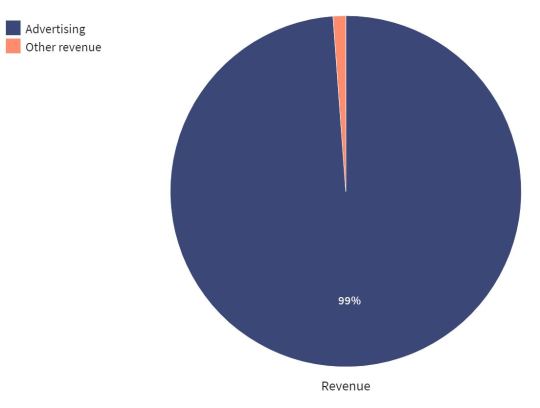
The Instagram purchase was a risk. During an interview Steve Henn from NPR quotes Josh Bernoff as saying, “a few years from now, it will be abundantly clear to those investors whether this was another brilliant business decision or Mark Zuckerberg's first big mistake.” Clearly this move was not a mistake and now the question is should Facebook be punished for being good at what they do? Should companies face negative publicity for taking risks that other companies would not. I think of how far Facebook and Instagram have come since 2012 and it’s hard to imagine them being as successful apart as they are together.

It is one thing to hate on Facebook because of their lax privacy policies, campaign influence policies, or Mark Zuckerberg’s past sins during his start up, but it’s another to thing to dismember a corporation because they’re the best at what they do. Competition laws always face these types of dilemmas. It’s up to the government and states to provide the evidence that their whole strategy was to become a monopoly to intentionally crush the competition vs a company that made sound investing decisions when others would not.
https://www.statista.com/statistics/268604/annual-revenue-of-facebook/#:~:text=In%202019%2C%20Facebook's%20revenue%20amounted,of%20income%20is%20digital%20advertising.
https://www.statista.com/statistics/268604/annual-revenue-of-facebook/#:~:text=In%202019%2C%20Facebook's%20revenue%20amounted,of%20income%20is%20digital%20advertising.
https://www.investopedia.com/ask/answers/120114/how-does-facebook-fb-make-money.asp#:~:text=Facebook%20sells%20ads%20on%20social,by%20the%20COVID%2D19%20pandemic.
https://en.wikipedia.org/wiki/List_of_mergers_and_acquisitions_by_Facebook
https://www.npr.org/2012/04/10/150372288/instagram-sells-for-1-billion-despite-no-revenue
https://www.nytimes.com/2019/05/09/opinion/sunday/chris-hughes-facebook-zuckerberg.html
1 note
·
View note